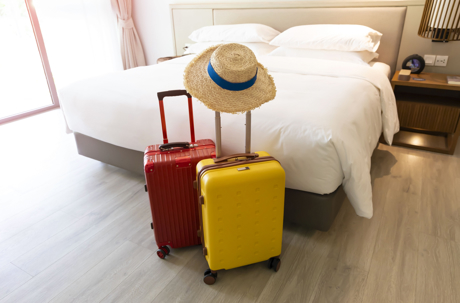Vacations are meant to be relaxing escapes, but an injury at a rental property, like an Airbnb, can quickly turn your getaway into a stressful ordeal. If you’ve been injured, you might be wondering who is responsible and how you can seek compensation for your medical bills, lost income, and other damages. This is where understanding premises liability comes in.
What Is Premises Liability?
Premises liability refers to the legal responsibility of property owners or operators to maintain safe conditions for guests. If they fail to do so, and you’re injured as a result, they could be held liable for your injuries.
The core principle is negligence. For you to hold someone accountable, you must prove that:
- The owner or host owed you a duty of care.
- They breached that duty by failing to fix or address unsafe conditions.
- That breach directly caused your injury.
Premises liability applies to a variety of spaces, from grocery stores and parks to rental properties and private homes—including short-term rentals, like those offered through Airbnb or VRBO.
It’s important to note that not every injury leads to liability. For example, if you tripped over your own suitcase, the property owner likely isn’t at fault. But if you slipped on a wet floor the owner failed to clean or repair, liability could come into play.
The Responsibilities of Property Owners and Hosts
With rental properties, both long-term landlords and short-term rental hosts (like Airbnb operators) have legal obligations to keep their spaces reasonably safe for guests. Here’s what that typically entails:
1. Maintaining a Safe Environment
Whether it’s a cracked walkway, broken railing, or electrical wiring hazard, owners are responsible for addressing hazards they know about or should have known about. For example, if the lighting in a staircase goes out, the owner has a duty to fix it promptly.
2. Conducting Regular Inspections
Hosts should routinely inspect their properties to identify potential risks. Many short-term rental platforms encourage this as part of their safety protocols. Ignoring regular maintenance can increase their liability.
3. Posting Warnings About Known Hazards
If an issue can’t be fixed immediately, property owners should alert guests by posting warnings or instructions. For example, if the deck is slippery, there should be a visible notice to use caution.
4. Following Local Safety Codes
Rental properties must comply with local health and safety regulations. This includes essentials like fire alarms, pool fencing, or secure balconies. Failure to meet local codes not only risks penalties but also increases liability if someone is injured.
Who Is Responsible in an Airbnb?
When it comes to short-term rentals, determining responsibility can sometimes be tricky. Airbnb itself typically disclaims liability in its user agreements, putting the focus on hosts. However, hosts may have insurance or be covered by Airbnb’s Host Protection program. An experienced attorney can help sort through these complexities to identify the responsible party.
Common Injuries & Situations in Rental Properties
Here are a few injury scenarios where liability might come into play:
Slips and Falls
A loose carpet, broken tile, or wet floor can lead to serious falls. If the owner failed to repair or warn you of the hazard, they could be held liable.
Pool Accidents
Many vacation rentals have pools, but if a host doesn’t provide proper fencing, signage, or maintenance (like clearing debris), it can result in dangerous slip-and-fall injuries or worse.
Falling Objects
Cabinets, decor, or fixtures that are improperly installed can fall and cause head or body injuries. The owner is responsible for ensuring all items are securely fastened.
Fire Hazards
Faulty wiring, lack of smoke detectors, or missing fire extinguishers could lead to serious harm if a fire breaks out.
No matter the situation, the key is determining whether the property owner’s negligence played a role in the accident.
What to Do If You’re Injured at a Rental Property or Airbnb
If you’ve been hurt, there are critical steps you should take to protect your health and your legal rights:
1. Seek Medical Attention Immediately
Your health comes first. Even if you feel fine initially, some injuries (like concussions or soft-tissue damage) may not become fully apparent until later. Prompt medical care ensures proper treatment and creates a record of your injuries.
2. Document the Scene
Take photos or videos of the hazard that caused your injury, such as a wet floor, broken railing, or faulty equipment. This visual evidence will be vital if you pursue a claim.
3. Report the Incident
Notify the property owner, host, or rental platform (e.g., Airbnb) about your injury. Be sure to keep all communication professional and factual, avoiding speculation or exaggerated claims.
4. Preserve Evidence
Save receipts, rental agreements, or any correspondence you had with the property owner or host. These documents may be useful for proving your case.
5. Consult With an Attorney
Premises liability claims can be complex, especially when dealing with short-term rentals or international properties. An experienced attorney can help you determine who’s at fault, assess the damages you’re owed, and handle negotiations with insurers or opposing parties.
6. Avoid Making Statements to Insurers
If the owner’s insurance company contacts you, avoid giving a recorded statement or signing anything without legal guidance. Insurance companies may try to offer low settlements or minimize liability.
Compensation You May Be Entitled To
If negligence is proven, you may be entitled to compensation for:
- Medical bills (current and future treatments)
- Lost wages and reduced earning capacity
- Pain and suffering caused by the injury
- Property damage (e.g., broken personal items)
An attorney can help calculate the full extent of your damages to ensure you’re not shortchanged.
Seattle Premises Liability Lawyers
As we conclude, keep in mind that accidents can be unexpected. In the event of an injury, focusing on immediate health and safety is paramount, followed by securing competent legal counsel if necessary. Seattle's Carpenter & Zuckerman law firm stands ready to provide guidance and support in personal injury cases, ensuring your rights are upheld and advocating for just compensation. Whether you're dealing with a premises liability issue or seeking to understand your legal options, reaching out to our Seattle-based experts could be your first step towards resolution and recovery. Contact us today at (425) 585-4009 to get started.

